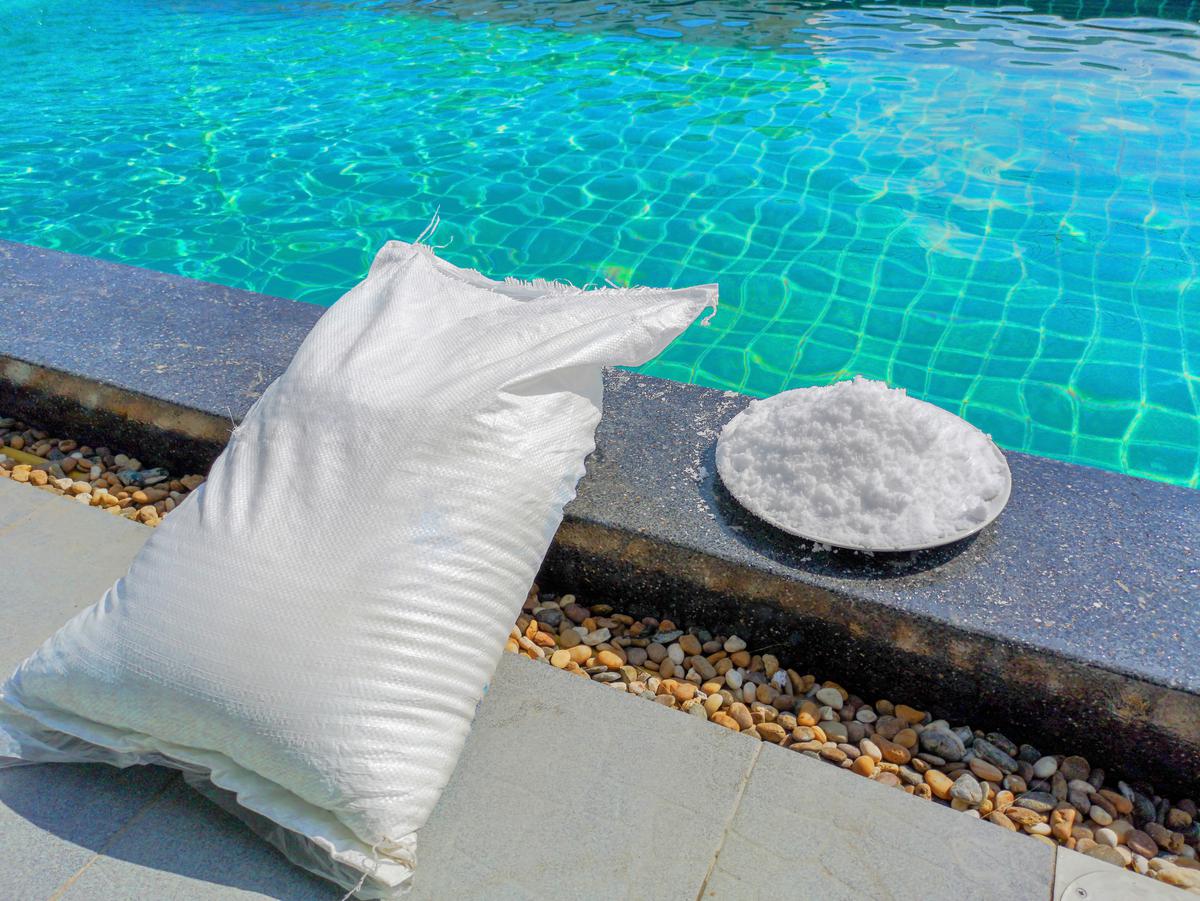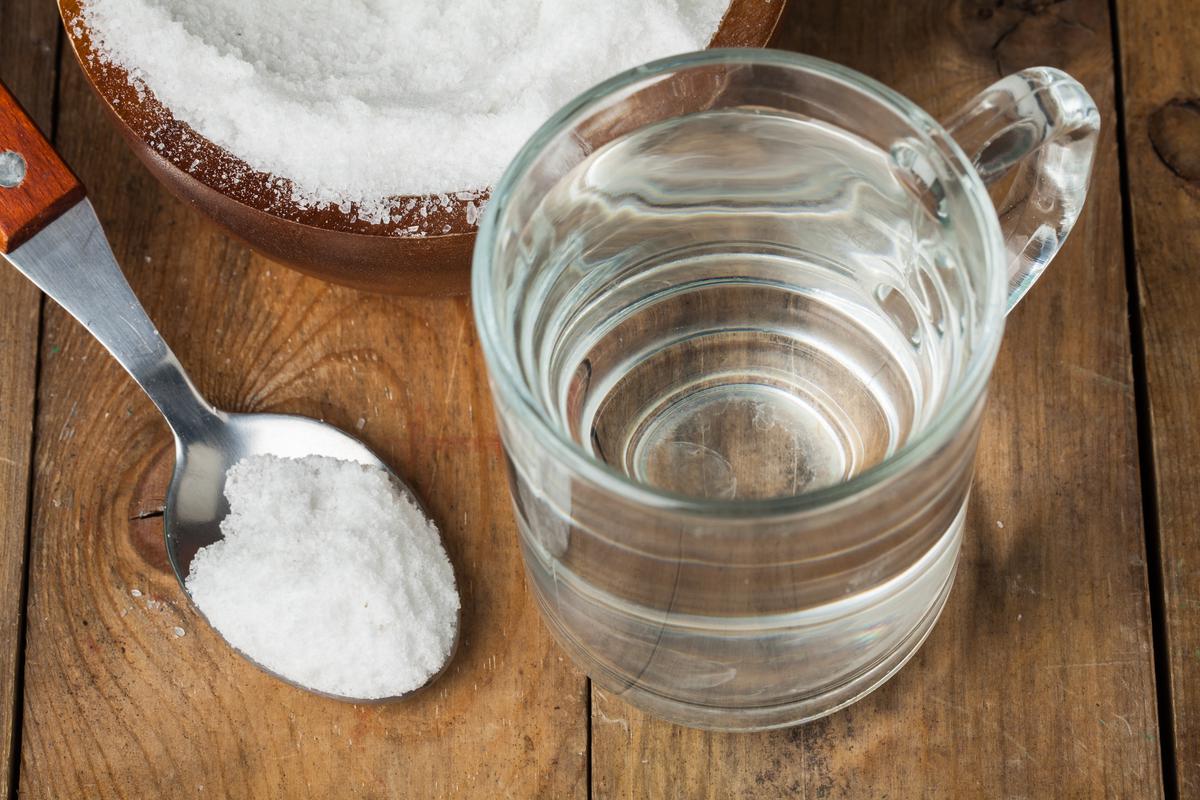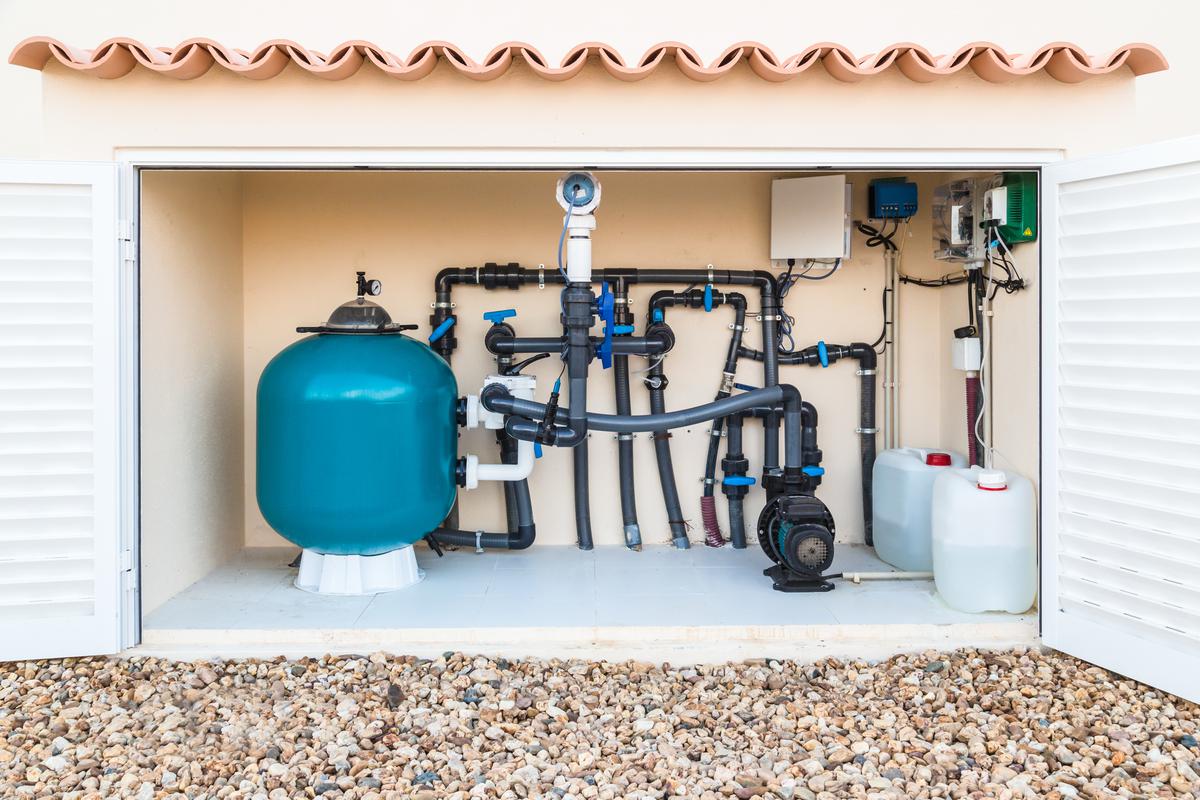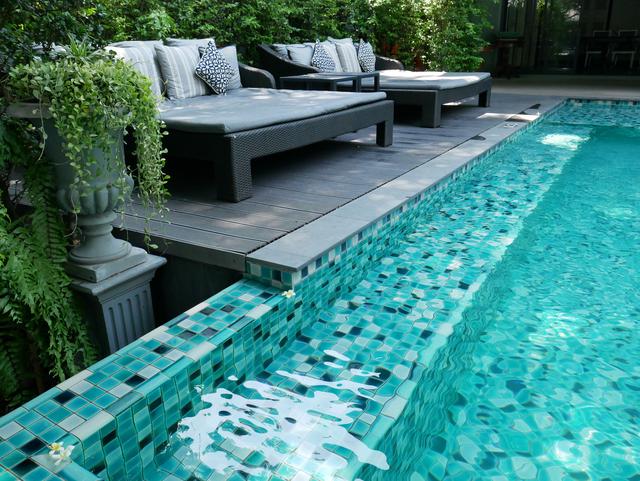When converting to a saltwater pool there are several costs to consider. There is the hardware itself and, of course, the bags of salt. There is also the matter of pool maintenance, as with any other kind of sanitizer. With each use of salt in your pool, certain parts will begin to erode, so you can expect to be inspecting or replacing certain parts every few years.
The salt chlorine generator costs around $500, with more expensive models with additional components going up to $2,000. One generator can sanitize your pool for 10,000 hours of use, which is over a year of being in full operation. For most homeowners who do not have their pool filtration system active 24/7, the salt-chlorine cell can last anywhere from three to five years.
The average private pool in the United States fills up with 20,000 gallons of water. On average, you will need 400 to 500 pounds of salt for pools is required. Once the salt is in the pool water it will not dissipate unless the poolwater is changed (which is done once every few years) or water from other sources is added, such as a hose or rain. In these cases, the water to salt ratio may be lower, but all you will need to do is simply check the ratio using a pool chemical test kit and add salt based on the results.
The cost of monthly maintenance can vary a bit from homeowner to homeowner. For some, the monthly maintenance costs end up being no more than $50. Other pool owners, however, can spend over $200 on having to replace certain parts of the pool system or add some extra salt if the ratio has become unbalanced.
All in all, the cost of having a salt water pool is not too steep for most homeowners and you should be able to implement a salt-chlorine filtration system without putting a big dent in your budget.











comments